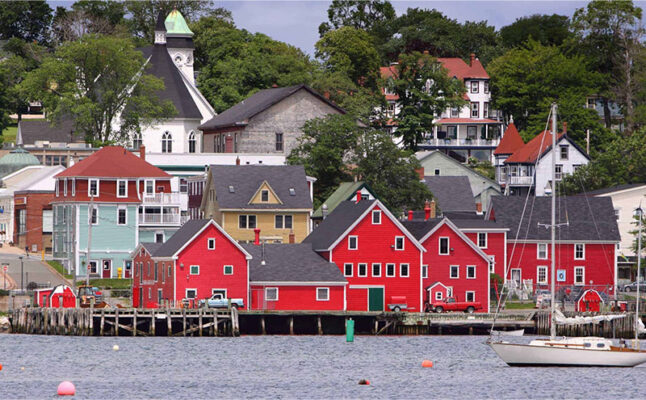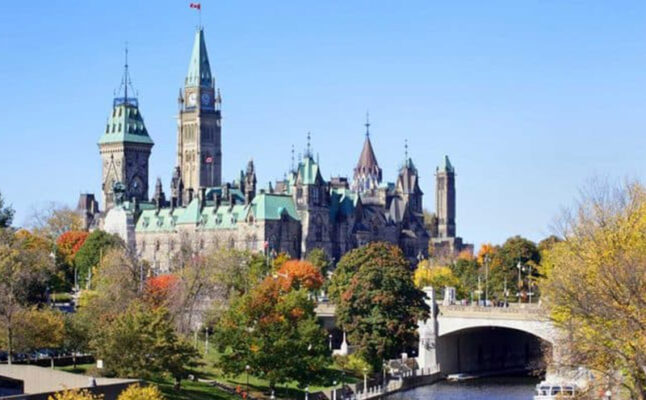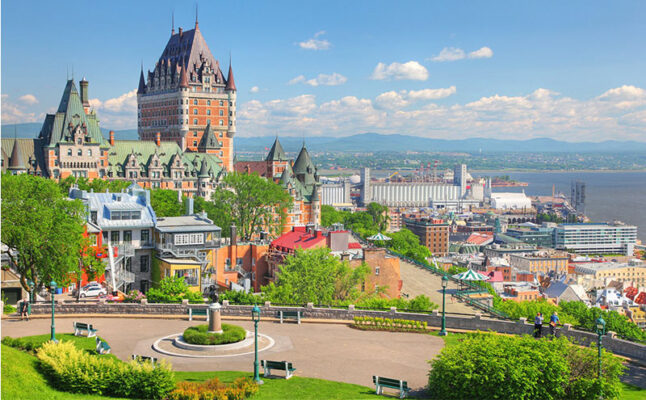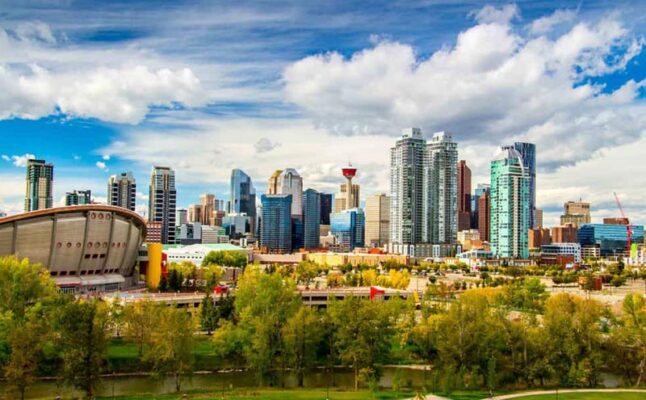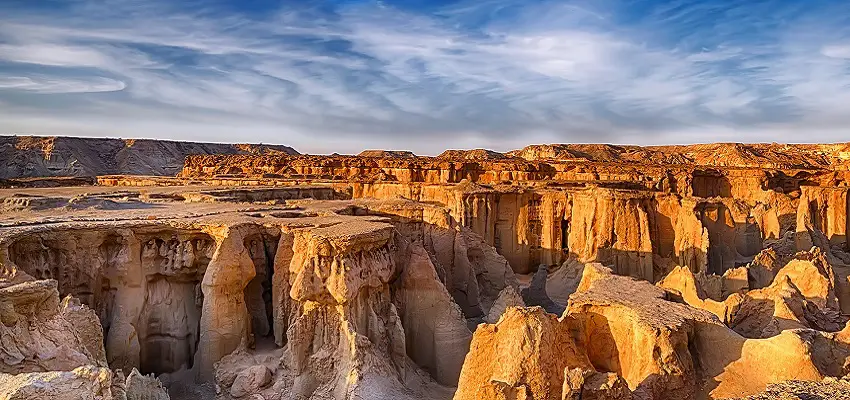Canada is a destination for Life, this beautiful country, with its vibrant and diverse civilization and breathtaking nature, has provided unique opportunities for living in this country.
Canada, a country in the continent of America, has such vastness that it has earned the title of the second-largest country in the world. This land, long recognized as one of the most attractive destinations for migration, education, travel, and living, with its diverse culture, breathtaking nature, and abundant economic opportunities, is considered an ideal destination for individuals from around the world. In this article from the flySepehran blog, we will delve into various aspects of life in Canada, including culture, economy, nature, and educational and job opportunities.
Essential Information about Canada
Essential Information about Canada | |
Population up to 2023 | 40 million people |
Official Languages | English, French |
Area of Canada | 9,984,640 square kilometers |
Currency | Canadian Dollar |
Telephone Country Code | 001 |
Capital | Ottawa |
Legal and Administrative Matters | |
Driving Direction | Right-hand side |

The Geographic Location of Canada

Canada is the second-largest country in the world, covering an area of over 9,984,640 square kilometers. It is located in the northernmost part of the American continent. Apart from its southern border, which is connected to the United States via a land border, the country is surrounded by coastal waters. Canada extends from the Arctic Ocean in the north to the Atlantic Ocean in the east and the Pacific Ocean in the west. The Canadian Shield, a relatively flat region, accounts for nearly half of the country’s land area. Corresponding regions of Canada are also covered by plains, mountainous areas, and significant river basins such as the Mackenzie, St. Lawrence, Yukon, Nisutlin, Nelson, and Saskatchewan rivers.
Canada and its Growing Population in This Country

The population of this country, according to the latest official reports, exceeds thirty-five million people. Considering the vast expanse of the country, Canada has become one of the least densely populated countries in the world. This population is composed of communities from Britain, France, Scotland, Ireland, Germany, Italy, China, Ukraine, the Netherlands, and others, who live alongside the indigenous people of Canada on this land. The prevalent languages among this population are French and English, and in terms of religion, there is no dominant tendency. All individuals in the country are free to believe in any religion or even not follow any particular religion.
Culture and Society

Canada, with its unparalleled cultural diversity, is home to individuals from different races, cultures, and languages. With two official languages, English and French, the country provides a platform where each individual can preserve their culture and identity while integrating into Canadian society. Cultural festivals, museums, and art galleries in Canada serve as windows to the diverse global and indigenous cultures of this land.
Indigenous peoples of Canada comprise a has group of tribes and ethnicities scattered in small and large communities across the country, and their rights are respected and protected in the Canadian constitution. The latest estimates indicate the presence of over 600 indigenous communities in this land. This level of ethnic diversity has created a unique cultural landscape where subcultures continually maintain their freshness and vitality under the influence of immigrant and neighboring cultures.
Climate Conditions and their Impact on People’s lives in Canada

Canada, as the second-largest country in the world, exhibits significant climatic diversity that deeply influences the lifestyle, culture, and economy of the nation.
Weather conditions in Canada vary from region to region. The eastern coasts experience moderate and humid weather, whereas inland areas and western plains endure cold winters and hot, dry summers. Northern regions of Canada exhibit the most distinct weather conditions, primarily cold and icy.
The weather conditions in Canada have a notable impact on people’s daily lives. For instance, in regions with cold and snowy winters, activities such as skiing, snowboarding, and ice hockey are integral parts of the culture and recreation. Additionally, weather conditions affect agriculture, tourism, and even the choice of clothing and housing.
Ultimately, the weather conditions in Canada are a significant factor influencing every aspect of life in the country. From lifestyle and daily activities to the economy and environmental policies, all are influenced by these conditions, playing a crucial role in life in Canada.
Canada National Day

One of the important days on the Canadian calendar is July 1st, known as “Canada Day.” This day marks a significant event in Canada’s history; a day when the country solidified its modern form as an independent state.
On July 1st, 1867, under the British North America Act, passed by the Parliament of Britain, a new government was established, encompassing territories then known as Upper and Lower Canada. This act divided Canada into the provinces of Ontario and Quebec.
Until 1982, this act served as Canada’s constitution. In the same year, the British North America Act was transferred from Britain to the Canadian Parliament, and Canada became a fully independent country. Concurrently with these developments, the name of the national holiday changed from “Dominion Day” to “Canada Day.”
Economy in Canada

Canada is considered one of the wealthiest countries in the world, and its position among the top ten world producers has made it economically prosperous and powerful. Major industrial products of this country include machinery, wood, transportation equipment, metal products, chemicals, and oil. Additionally, due to vast mineral resources such as zinc, nickel, gold, silver, iron ore, uranium, copper, cobalt, and significant reserves of oil and natural gas, Canada ranks among the wealthiest countries globally. As a result, public welfare in this country has reached desirable conditions, and its healthcare services are also in an excellent state on a global scale. Furthermore, the education system of this country is highly advanced and organized due to these factors.
Education in Canada

Canada is recognized as one of the top educational destinations globally. The universities and higher education institutions in this country offer high-quality education and diverse academic programs, allowing students to pursue studies in various fields and acquire the necessary skills for success in the global job market. Each year, a large number of students from around the world obtain study visas to pursue education in Canada.
Nature and Tourism in Canada

Canada’s nature, with its vastness and unparalleled diversity, ranging from dense forests and towering mountains to roaring lakes and rivers, is a paradise for nature enthusiasts and outdoor activities. Canada’s national parks, such as Banff and Jasper, with their breathtaking waterfalls, attract millions of tourists from around the world to this region.
Provinces and Important Regions of Canada

Canada consists of ten provinces and three territories, collectively having relative autonomy from the central government. This federal system forms the basis of the country’s governance and provides it with political legitimacy and identity.
Ontario, Quebec, Alberta, British Columbia, Manitoba, New Brunswick, Newfoundland and Labrador, Nova Scotia, Ontario, Prince Edward Island, and Saskatchewan are counted as provinces or states of this country. The Northwest Territories, Nunavut, and Yukon are also considered its three territories. The city of Toronto serves as the political capital of Canada, and Ottawa serves as the major economic center of the country, located in Ontario, which is somewhat considered the most important province.
Best Cities in Canada for Living
Canada is known as one of the countries with high quality of life and abundant opportunities. With its cultural diversity, high safety, excellent healthcare system, and pristine nature, the country is an ideal destination for living. Here, we introduce some of the best cities in Canada for living:
Vancouver, British Columbia
Vancouver, with its stunning natural landscapes ranging from towering mountains to beautiful coastlines, is one of the most popular cities to live in Canada. This city is renowned for its milder climate compared to other parts of Canada, abundant job opportunities in technology, filmmaking, and arts, and high quality of life.
Toronto, Ontario
Toronto, the largest city in Canada, is known as one of the best cities for living due to its unparalleled cultural diversity, growing job market, and excellent educational opportunities. The city hosts diverse communities from around the world and offers abundant cultural, recreational, and educational facilities.
Calgary, Alberta
Calgary, with one of the highest qualities of life globally and a strong economy based on natural resources and technology, is an excellent choice for living. This city is also notable for its proximity to the Rocky Mountains and numerous outdoor recreational opportunities.
Ottawa, Ontario
As the capital of Canada, Ottawa is known for having one of the lowest unemployment rates in the country and a high level of education, making it one of the best places to live. This city is famous for its abundant green spaces, high safety, and excellent quality of life.
Halifax, Nova Scotia
Halifax, with its friendly community and peaceful environment, is known as one of the best small cities in Canada for living. This coastal city boasts a diverse economy and offers numerous opportunities in marine, tourism, and services sectors.
Quebec City, Quebec
Quebec City, with its rich history and stunning architecture, offers a unique opportunity to experience French culture in North America. This city is known for its high quality of life, reasonable housing costs, and cohesive community.
Choosing the best city for living in Canada depends on lifestyle, priorities, and job opportunities. Each of these cities has unique features that can meet different needs.
In conclusion, Canada is an everlasting destination. This vast country offers more than just beautiful landscapes and excellent universities for education. With a strong economy, pervasive culture, and abundant job opportunities with suitable income, Canada invites those seeking a permanent home for living.
Frequently Asked Questions About Canada


